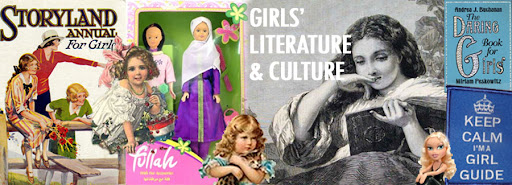For a start, I feel old because I did not know there even was a "Generation Z" until I read the newspaper today. I'm also supposed to feel old because an article in it describes the way that women of my generation packed their dolls away aged about 10 or 11, while girls are now tiring of brushing knots out of polyester hair at an average age of 6 or 7. The study cited in the article suggests girls are moving on to technological play a lot earlier, preferring to spend their leisure time on gaming systems, iPods and PCs.
The researcher, Mark McCrindle, argues that "they're [girls] moving into a technological world much earlier and it's partly coming from their peers … but it's also partly coming from parents who are pushing their children towards more structured educational toys," he said. This all sounds feasible, but why is this specifically problematic for girls? It is discussed here as a sign of childhood being "eroded" and as a follow-on effect of the premature sexualisation of girls.
Strangely it seems like it's a problem for girls to move on to gaming and electronic gadgets (even an iPod is mentioned, which hardly seems gendered in that surely boys and girls enjoy music). Did the study consider at what age boys are giving up action figures and cars? Might it not be that they are similarly developing a penchant for electronic goods at an early age? And perhaps if there has been a time-lag for girls up until now it has been part of the gendering of toys and computers. Would it have been sufficiently "girly" for an eight-year-old to be into gaming ten or twenty years ago? (Not to deny any exceptions, as I was particularly enamoured of my Commodore 64 in 1987.) How is the context different now when almost every Australian home has a computer (or two), internet, and a substantial majority have a gaming console as well?
Play with dolls fulfils a kind of preparatory function for mothering. Girls toys include ovens and irons because these are jobs it is imagined that they will one day perform. For boys we manufacture imitation power tools and lawnmowers because these tough jobs are male. Mums and Dads are probably not sticking to these gendered norms as represented in the toy aisle as firmly as in the past. Maybe girls ditch dolls earlier because they see Mum taking her laptop to work and want to emulate her in the same way that girls of previous generations wanted a replica kitchen to model Mum's daily routine?
And if dolls are waning in popularity then someone better tell the people behind the new Australian Girl doll. These dolls are meant to resemble their girl owners in age and are presented as thoroughly Australian in their netball uniforms and beachwear. The creator of the doll, Helen Schofield, was also motivated by the sexualisation of girls and wanted to counter "the negative impact of popular culture on young children". I'm interested to know whether a range of non-violent boys' toys are being developed at the moment to stem the negative impact of popular culture on them. Or is that less exciting than stemming the tide of pre-teen g-strings?
